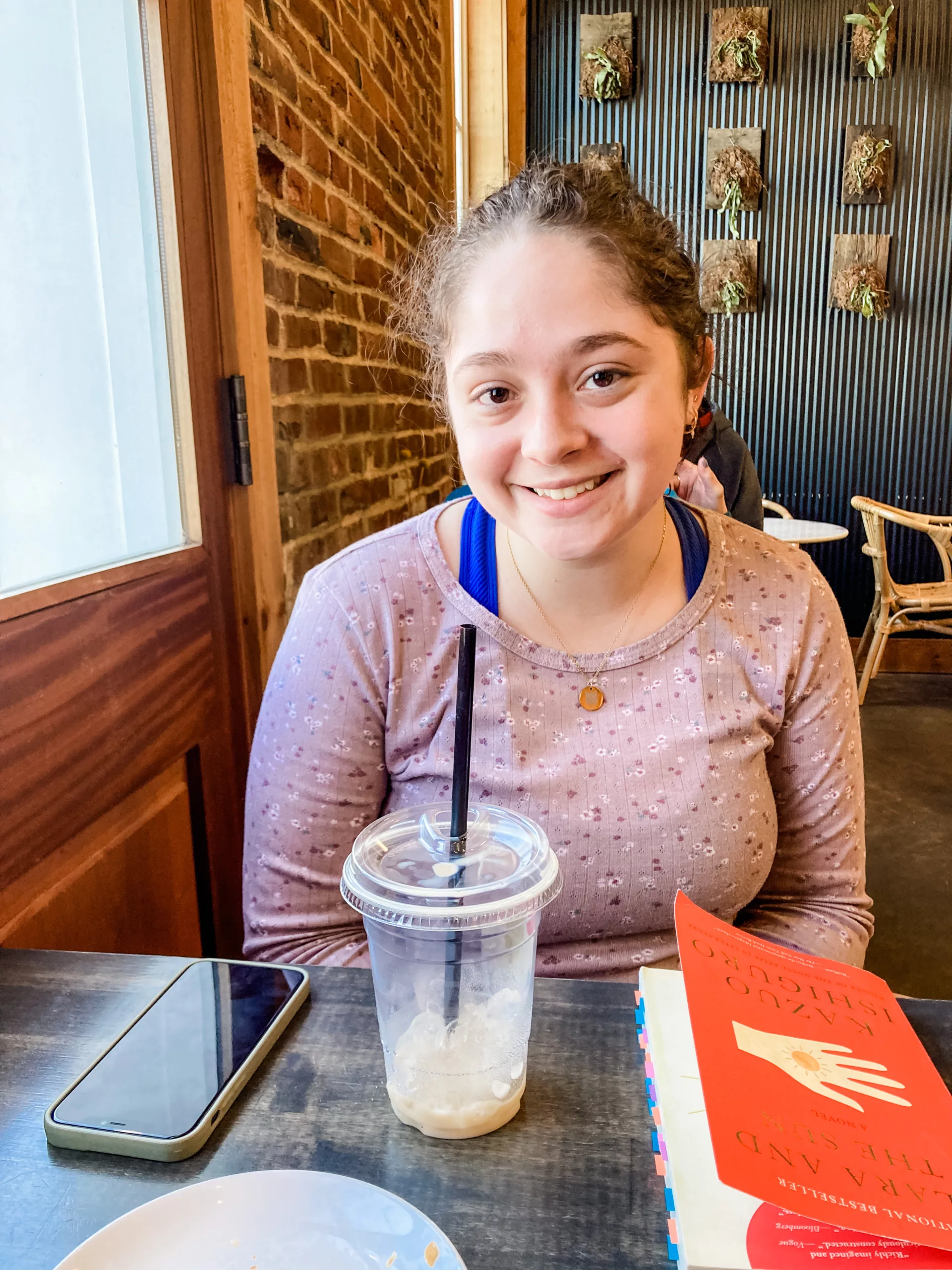The Mother-Daughter Book Club #2—Klara and the Sun
My daughter Evelyn has consented to be an occasional guest star on my blog by agreeing to participate in a book club with me. Last summer when she was on break from college, we decided to read some books together and visit coffee shops to talk about them. Just us two.
You can read about last summer’s Mother-Daughter book club here. FYI, we read This is How You Lose the Time War by El-Mohtar and Gladstone, Lessing’s The Fifth Child, and Murakami’s After Dark.

We had every hope of repeating last year’s fun times and things started off well. We read and discussed, for two hours, Ishiguro’s Klara and the Sun while enjoying some fancy avocado toast at a coffee shop overlooking the Missouri River. The first meeting was a resounding success. It was also the last. Our club made it through exactly ONE book. The short explanation why is this—Evelyn started reading Kafka on the Shore and couldn’t get through it but couldn’t leave it. She happened into literary quicksand. I blame Murakami.
But at least we’d picked a great book. Evelyn and I were both fans of the dystopian Klara and the Sun. On our 1-5 scale, she gave it a 4 and I gave it a 5. The story is set in the future, but the details of the world, including the setting and specifics about technology, are kept vague. The story is narrated by the title character, Klara, who is an “Artificial Friend” (AI) in a humanlike body (again, details are vague). Klara is purchased as a companion for fourteen-year-old Josie, who suffers from an unspecified illness.

Without going through a plot summary, I want to succinctly articulate what I liked about the book. This is a good place to note that half of my book club (my traditional 12-member club) disliked it. Which goes to show that just because a book was longlisted for the Booker Prize and was written by a Nobel-Prize-winning author doesn’t mean it’s to everyone’s taste. My affection could partly be because I hadn’t read a book I adored in a more than a hot minute and so was coming out of a dry spell. I was primed for love.
The primary appeal of the book for me is Klara’s naïve, purpose-driven, human-like-yet-not voice. She’s extremely observant, as she’s been programmed to be, yet her lack of worldly experience and context for what she observes give her a certain innocence. And also creates a constant undertone of tension. Despite her “intelligence”, she misinterprets things and unwisely trusts those in authority over her. She makes bad decisions.

Although Klara’s voice isn’t aesthetically robotic (although she’s literally a robot) there’s a certain dispassionate curiosity to her dialogue and thinking, a matter-of-factness about her. It would seem like this could be a negative because you’d think that the more emotion a character will exhibit, the more emotion a reader will feel. But that’s actually not true. When drama is high, reigning in the language used by a character/narrator will allow for a heightened emotional reaction in the reader. It’s a principle of throwing things into relief. Here are some relevant words from Chekhov:
Write with more self-restraint. The more emotionally charged a situation, the more emotional restraint one must use in writing, and then the result will be emotionally powerful.
I’ve used the short essay “Going Cold” in my writing classes to help demonstrate the principle of writing cool when the action is hot. Rather than having characters whoop, wail, and emotionally thrash about to spark an emotional response in a reader, the more effective approach is to pull back.
I didn’t intend for this little book review to be primarily a lesson on voice and conveying emotion, but here we are. I mentioned that some of my book club mates didn’t like the book. But after we discussed it, several said they were starting to like it better. The book definitely provides great topics for discussion—contemporary issues surrounding AI, the nature of love, genetic engineering, the moral concerns when society casts aside humans (and androids), etc.
Did you read Klara and the Sun and what did you think?







What a beautiful and insightful review!
I loved the book, but couldn’t figure out the precise reason why? I thought I was programmed to put an Ishiguro book on a pedestal. Of course, the emotions and the desperation of the AF and the interesting chemistry between the various characters was fascinating to read. But as you pointed out, the language used in the narrative (observant yet innocent) might have been key.
Also fantastic point about the pacing of the plot in relation to the tension!
Hello, Vivek. Another *voice* thing I wonder about with this book is the difference between the experience of reading a hard copy and listening to audio. Someone recently told me that they listened to the book and the narrator’s voice had a robotic quality that turned them off. Klara’s voice wore on them after a while. I think when I read the hard copy, I perceived the syntax/content to be a little bit robotic but not necessarily the tone of how she speaks. Anyway, such a great book for discussion!